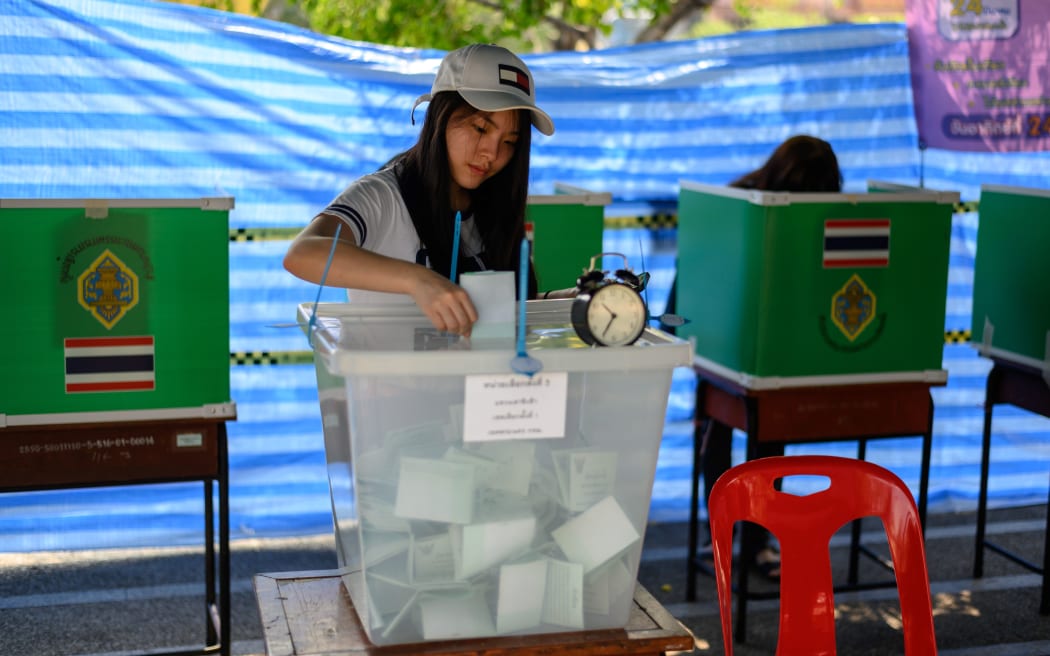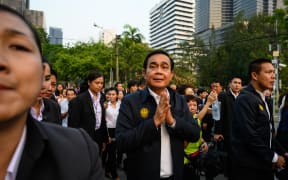There is confusion in Thailand over the results of the election although it had looked like a military-linked party was in the lead, and their victory would keep the Thai army in place as the country's major political force.

A woman casts her ballot at a polling station in Bangkok. Photo: AFP
The Electoral Commission (EC) initially said that with more than 90 percent of the ballots counted, Palang Pracharat, the military's proxy party, had more than 7.5 million votes.
That would position it to form a government under the current prime minister, General Prayuth Chan-ocha.
But there are growing complaints about irregularities and inaccurate data.
In a press conference on Monday, where it was expected to clarify the preliminary results, the EC instead delayed announcing them and said the full official results would come on 9 May.
Thailand's military has orchestrated more than a dozen successful coups, the latest in 2014, and has ruled the country through a junta since then.
Pheu Thai, the populist party that had been expected to finish first according to most polls, currently holds second place.
The party is a political vehicle of Thaksin Shinawatra, the former prime minister whose supporters have won every election since 2001.
But even if Pheu Thai manages to overturn the latest vote count, it will face significant obstacles to forming a new government in the lower house.
Meanwhile, the Palang Pracharat party is all but guaranteed the support of the junta-appointed Senate, under new electoral rules the junta drafted.
Under five years of military rule, Thailand's economy has stumbled, with the gap between rich and poor increasing.
Concerns from the Thai middle-class and business interests kept the pressure on the junta to call elections, although the date was put back several times, as the military sorted out its proxy party support.
Thai elections have often been followed by protests and street violence.
It's not clear whether the scale of the win by military-supporting coalition parties is sufficient to avoid that outcome again, but it also appears the prospect of stability and a desire to avoid unrest may well have been the priority for many Thai voters.
The country now likely faces several weeks of horse-trading between political parties, before a coalition government is formed.
New Zealand votes deemed invalid
Thailand's ambassador to New Zealand is disappointed that more than 1,500 votes from people here have been declared invalid because they arrived too late.
In a statement, Danai Menabodhi said the Thai embassy regrets the voices of eligible Thai voters in New Zealand were not heard in the election.
Mr Menabodhi said embassy staff and volunteers had taken more than two months to prepare for advance voting, which was held earlier this month at the embassy in Wellington, at mobile polling units in Auckland and Blenheim, and through the mail.
1,862 people here had registered for early voting and 1,542 of them cast their votes, a turnout of more than 80 percent.
Envelopes containing individual ballots were reportedly sorted on March the 17th and sent from Wellington to Thailand as air cargo a day later.
- RNZ / BBC



